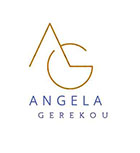Meta Tourism
The role of Metaverse in the tourism sector .
I had visited in February the big tourism exhibition BIT 2023, at Allianz MiCo in Milan.
An exhibition that, for this year, is based on 4 major themes:
- innovation
- sustainability
- quality
- integration.
The main trends found at the center of the discussions are Territories and the metaverse.
Specifically, it was analyzed “how virtual reality can open the way to a more sustainable experience centered on nature tourism”.
With the main goal of vigilance and awareness among travelers, so that they visit areas to “get lost in nature”…
Wanting a country to maximize its potential to create unique experiences for its visitors the necessary ingredient for success, are digital tools and methods.
Digital transformation.
The typical digital experience is added to higher post-pandemic traveler expectations, and 4.0 technologies and augmented reality are a standard discussion across all panels.
Inside the “new tools that will change travel forever”. It’s also the Metaverse.
Various studies now point out that virtual reality technology guides 46% of travelers to the destination and accommodation.
Challenges in the near future naturally include Digital Travelers: The new challenge of destinations, which includes new offers and start-ups to tap into the growing segment of remote occupations.
The Metaverse and virtual or augmented reality are now attracting the attention of a large part of the travel public.
These techniques are here to stay acting as a marketing tool and is not coming to replace actual travel .
The Metaverse has been described as a post-real universe, in short a metauniverse, formed by a network of 3D worlds and real-time simulations, a digital mixed reality unbound by conventional physics and limitations.
We can see already many uses and products that these new technological applications may create in the web3 environment.
A recent Booking.com survey of over 24,000 citizens from 32 countries found that younger generations (especially GenZ and Millennials) are more likely to use the Metaverse, as it has been shaped so far, to plan trips. . Additionally, 35% of respondents said they were willing to spend multiple days in the Metaverse to explore potential locations.
Applications
Through this technology, travelers can navigate hotel rooms, conference venues, icons and area attractions.
They can also connect, as in a video conference, with those in charge and ask questions about their trip, the accommodation, its services, tours and whatever else they want to know.
According to Booking.com, travelers will soon be bolder in their real-life travel choices after being able to visit them first in the Metaverse through their online avatars – especially handy for those who may feel uneasy about trying something new.
Everyone understands that the trend, recorded by Booking.com, forces the marketing of destinations, hotels and overall the entire industry to adapt to the new reality.
The online platform itself recommends that properties invest in high-quality photos and virtual tours of their accommodation to help potential guests get a picture of their accommodation facility.
It also suggests that hotels and accommodation owners highlight all those unique features that make their accommodation stand out.
All over the world, industries are adapting to the rise of virtual reality technology, including the introduction of the metaverse, and trying to figure out what it all means.
It is a fast growing industry, Bloomberg estimates the virtual reality segment of the stock market to be worth $800 billion by 2024.
And if this trend continues and the metaverse expands and evolves, more and more sectors of the hospitality industry will begin to feel its impact.
From hotels and wedding venues to today and concert halls, experts across the hospitality industry keep a close eye on the metaverse to stay informed, and of course current.
Tourism and travel will remain growing industries, but now have a new avenue for connecting them to the conditions. And of course travelling in the metaverse is not going to replace real travel, but it can enhance the experience through virtual tourism .





